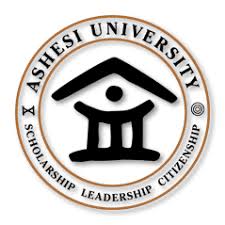
Academic Governance and the Disconnect of the LMS
With immediate goals on Accreditations taking a precedence, the Self-assessment Report of the Accrediting bodies become the basis for the Transformation. The Self-assessment report demands enormous data and evidence from a variety of Academic and Administrative processes. It immediately puts the focus of the Institutions on EdTech tools to automate the processes so that the investment in transformation is sustainable.
Traditionally the EdTech market offers Student Information Systems (SIS) and Learning Management Systems (LMS). The SIS offers Administration capability with a reasonable alignment with the Accrediting bodies. However, Accreditations are largely around improvement in Learning and not Administration. This makes us look at what kind of EdTech is available. A variety of LMS systems is the closest for governing academics.
LMS systems manage the Teacher Student Interaction and Collaboration. Now, which of these processes can help Institutional Governance? The LMS appears to be a silo and out of context in this scheme of things.
It is critical to have one system or a seamlessly Integrated SIS and LMS and break the boundaries. In general a single user will not be a user of the SIS and the LMS and as a result disparate groups of people – Administrators and Teaching Faculty, make independent decisions on EdTech. This further strengthens the illusion and justifies the SIS and LMS divide. But who represents the Institution? What does the Institution need out of EdTech to deliver its responsibilities to achieve Accreditations?
There is another illusion that integrating two different products, the SIS and LMS can achieve these objectives. This integration is about data flow and not process flow. It will not deliver the ability to govern the process seamlessly. For example, if the student grades are finalised in the LMS can the student course registration for the next Term start immediately without any manumatic intervention. Can the completion of one process automatically drive the next step in the flow chart? There are numerous crossovers in the process like Student Enlistment, Staff workload planning, Plantilla creation, Assessments and the publishing of Grades and so on. However they are ignored due to a possible opinion that one is not the others business.
EdTech needs to help Institutions define, monitor and regulate the Academic processes that start at the time of Student Enrolment and finishes with Graduation. One cannot draw a boundary. There is an aspect of Academics in every process right from the Student Application form where the student chooses the program. It is embedded in the Financial process, Evaluation, Teaching, Learning, Grading, Clearance for the next term/semester, Graduation etc. So, how can one achieve Academic Governance by running different systems for learning and administration?
A major re-alignment is needed in EdTech. Given the strong competition for Admissions and the aspiration of Institutions to become global or more nationally visible or even be sustainable, the focus today appears to be on getting Accredited. EdTech must enable Institutions’ governance. A user process step completed must enable guided functioning. The end-users themselves must experience a seamless orchestrated process flow.
What’s next in EdTech?







